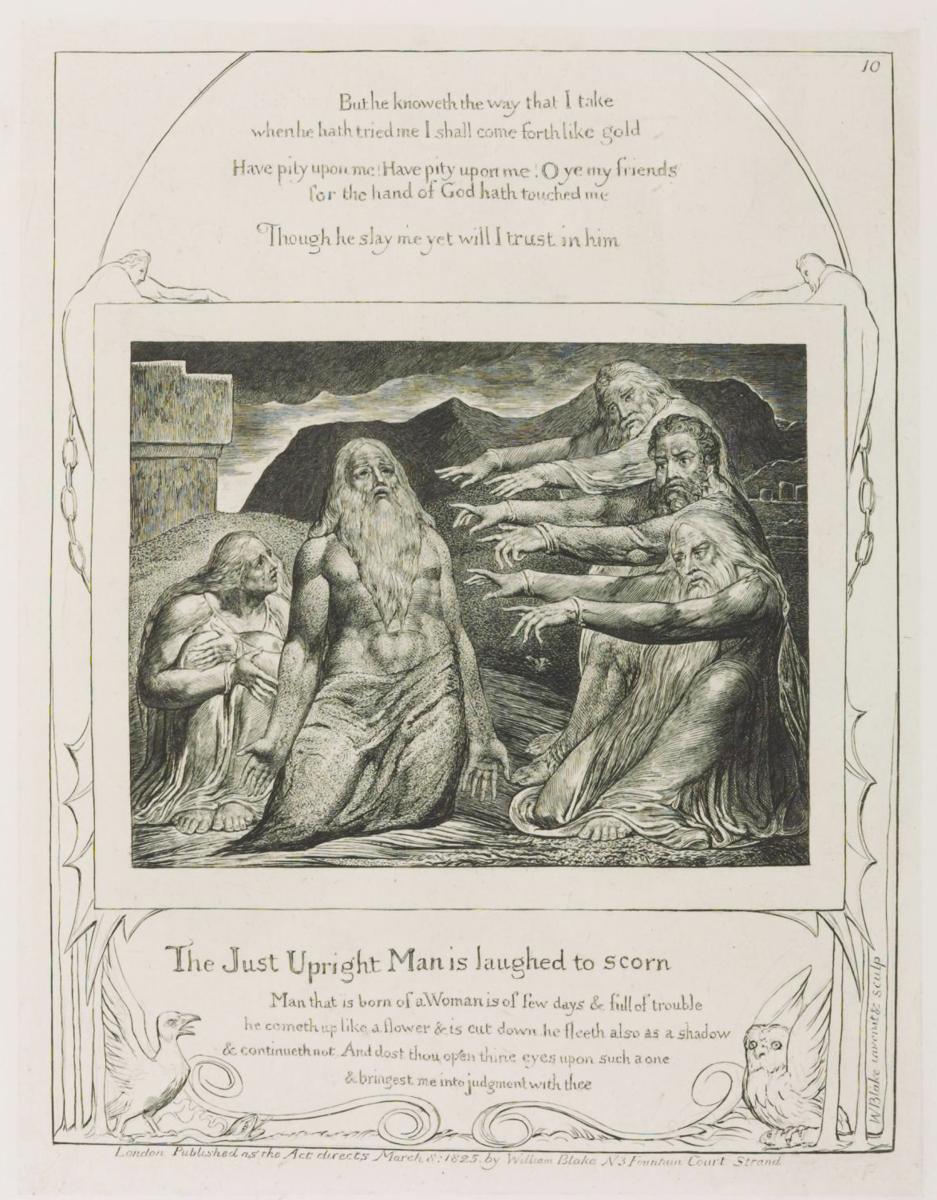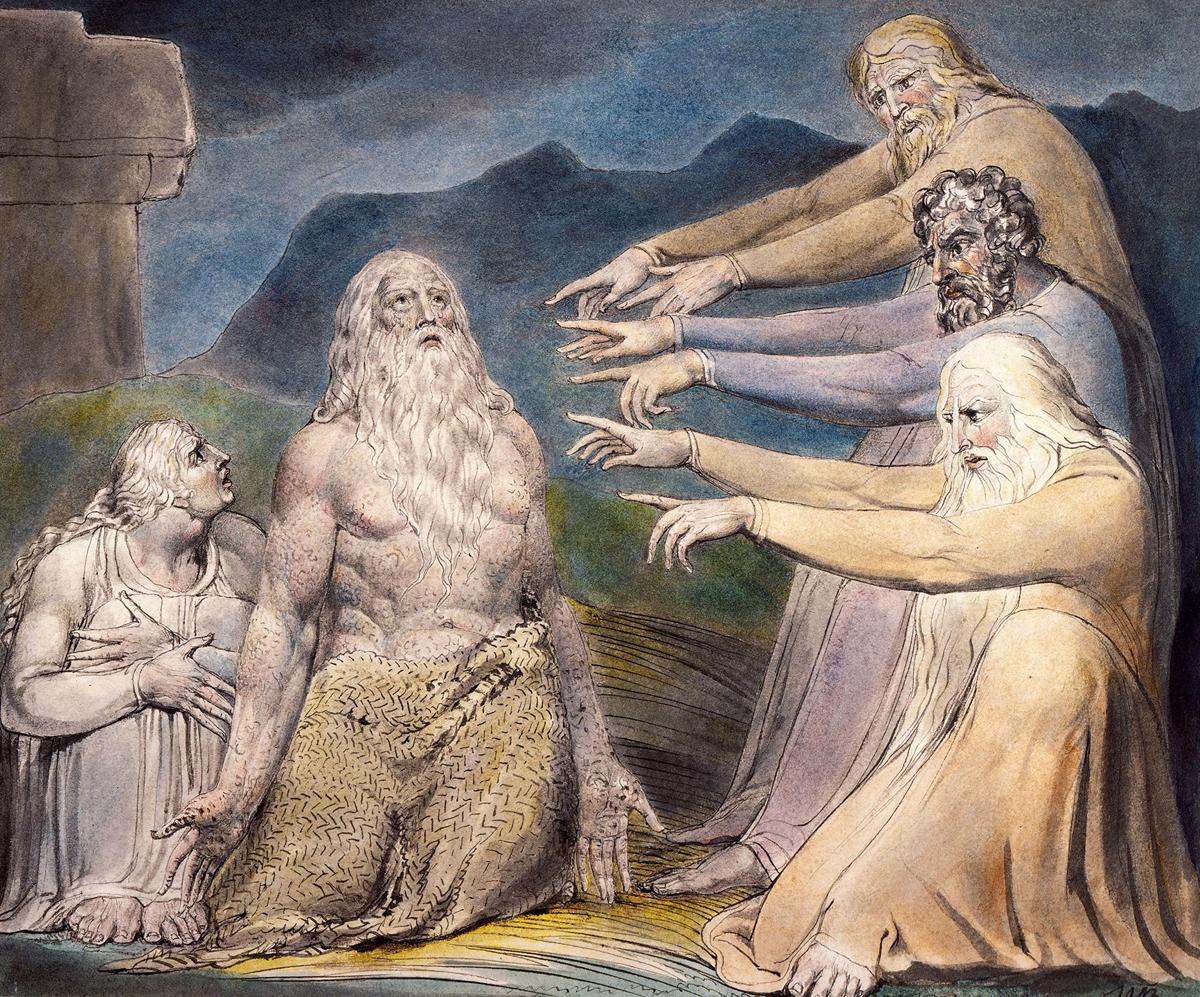December 9: Patience in Suffering
♫ Music:
Day 7 - Saturday, December 9
Title: Patience in Suffering
Scripture: James 5:7-12Be patient, therefore, brothers, until the coming of the Lord. See how the farmer waits for the precious fruit of the earth, being patient about it, until it receives the early and the late rains. You also, be patient. Establish your hearts, for the coming of the Lord is at hand. Do not grumble against one another, brothers, so that you may not be judged; behold, the Judge is standing at the door. As an example of suffering and patience, brothers, take the prophets who spoke in the name of the Lord. Behold, we consider those blessed who remained steadfast. You have heard of the steadfastness of Job, and you have seen the purpose of the Lord, how the Lord is compassionate and merciful. But above all, my brothers, do not swear, either by heaven or by earth or by any other oath, but let your “yes” be yes and your “no” be no, so that you may not fall under condemnation.
Poetry:
Job
By Elizabeth Sewell
They did not know this face
Where the chin rested on the sunken breastbone,
So changed it was, emptied, rinsed out and dried,
And for some future purpose put aside,
Expecting torment, they were much perplexed.
His world had gone,
And he sat isolated, foul and flyblown,
Without a world, with nothing but a mind
Staggered to silence since it could not find
Language to utter its amazing text.
For where was Job?
In some strange state, unknown and yet well-known,
A mask that stared hollowly in God's breath,
Mind that perceived the irrelevance of death,
And the astonished heart unmoved, unvexed.
They did not see his soul
Perched like a bird upon the broken hearthstone,
Piping incessantly above the ashes
What next what next what next what next what next
PATIENCE IN SUFFERING
One of the fruits of the Spirit, patience, is something that often seems in short supply. In an instant gratification culture, where possessions can be acquired at the push of a button, and drones deliver material goods in record breaking time, the modern world has been characterized by its lack of emotional and spiritual endurance. Suffering, on the other hand, is in abundance. No better example of the way to combine these two seemingly contradictory yet symbiotically productive experiences--patience and suffering--can be found than in the life of the biblical patriarch, Job. Job's steadfastness, as the book of James points out, serves as a godly model for all believers. Job's example has plenty to teach us in the present hour.
In William Blake's illuminated drawing of the ignorant, accusative tribunal of his peers, Job, with his infamous "curse God and die!" wife at his side, maintains his focus in the right direction. While his wife selfishly clutches herself, and his so-called friends point their fingers in judgment and condemnation, Job bares his palms wide open, making it clear he has absolutely nothing to hide. Despite their foolish advice, he continues to look up: past the unhelpful spouse, up over the heads of his non-comforting comforters, up into the heavens, up to the God who understands his perplexing torment. Blake's Job, in his Herculean physique and palpable dejection, stands firm as a pillar of strength in the face of adversity.
Elizabeth Sewell's poem, "Job," acknowledges the disfiguring effects of suffering; how it makes us unrecognizable to our friends: "They did not know his face . . . So changed it was, empty, rinsed and dried" (Sewell). Our suffering may well be perplexing to others, but as believers we have the assurance that it is all by design. That is, though our suffering may indeed knock us down, there is a future hope that far outweighs any present suffering we might experience. Sewell's Job has reached this place of understanding, a perspective where even death itself has no sting ("Mind that perceives the irrelevance of death"). However, that doesn't take away from genuine suffering. As Sewell's poem describes it, Job's heart, in anguish, cries out "What next, what next, what next": what further ill can befall me? Job thinks. Actually, while few of us have ever experienced the depth of calamity that befell Job, all of us are wounded and have suffered loss. As Dallas Willard puts it: "The local assembly or congregation would, realistically, act like a hospital, with various people at various states of treatment and recovery. Then we move outward in love to those around us in the natural connections of life." William Blake once wrote that "The glory of Christianity is to conquer by forgiveness." Our suffering allows us to empathize with others who have in the past or are presently enduring hardship, and to forgive them for perceived wrongs. We are all God's patients, and in His mercy, He is infinitely patient with us.
Prayer:
Lord, teach us to practice the patience of Job. It is foolish to wish for calamity to strike, yet we realize that sometimes Your greatest lessons are learned in the fiery furnace of affliction. Teach us to be sensitive and sympathetic to those around us so that we might provide comfort to others who are suffering. Allow us to help heal our fellow patients in the infirmary of this earthly life.
Amen
Marc Malandra
Associate Professor of English
Biola University
About the Artwork:
Job Rebuked by His Friends, 1825 (reprinted in 1874)
William Blake
Line engraving on paper
198 x 152 mm
Tate Museum
London, England
This is an illustration of Chapter 12:4 from the Book of Job. The inscriptions in the margins of the image are Job’s statements to God which can be found elsewhere in the Book of Job. Here we see Job enduring the mocking of his friends and the rebuke of his wife. Illustrations of the Book of Job, a series of twenty-two engraved prints, was published by Blake in 1826. The engraved Illustrations were a commercial success and are considered to be Blake’s greatest masterpieces in the medium of engraving. As Blake spent much of his lifetime unrecognized and impoverished, he strongly identified with Job and returned to illustrating Job’s story throughout his career as an artist.
About the Artist:
William Blake (1757–1827) was a 19th century writer and artist who is regarded as a seminal figure of the Romantic Age. His writings and works of visual art have influenced countless writers and artists through the ages, and he has been deemed both a major poet and an original thinker. Blake began writing at an early age and claimed to have had his first vision, of a tree full of angels, at age 10. He studied engraving and grew to love Gothic art, which he incorporated into his own unique works. A misunderstood poet, artist, and visionary throughout much of his life, Blake found admirers late in life, and has been vastly influential since his death in 1827.
About the Music:
“Eclogue for Piano and Strings, Op. 10” from the album Gerald Finzi
About the Composer:
Composer Gerald Finzi (1901-1956) was raised in London and is known for a distinctly British sound. Of Jewish descent, and admittedly agnostic, Finzi still often composed sacred choral works, and was inspired by texts of well-known Christian poets like Thomas Hardy and Christina Rossetti. Finzi often composed on the themes of loss and suffering, and was moved by the death of his music teacher during WWI, his work with WWII refugees, and his own battle with Hodgkin’s Disease. His “Eclogue for Piano and Strings” though profoundly sad and filled with tension, culminates in serenity, quiet, and hope of restoration.
About the Performers:
The Northern Sinfonia is a national and international touring chamber orchestra based in northern England. British-born conductor Howard Griffiths (b. 1950) appears frequently with the Northern Sinfonia both in recordings and on concert tours. Also a native of England, pianist Peter Donohoe (b. 1953) studied music extensively in many different forms, including piano, violin, and percussion. During his undergraduate career he was a timpanist with the BBC Orchestra, later devoting his studies to piano, most notably with Olivier Messiaen in Paris. The winning of several international competitions launched his piano performance career, especially as a soloist with recognized orchestras around the world.
About the Poet:
Elizabeth Sewell (1919-2001) was an English poet, critic, and novelist. Sewell was born in India and educated in England, earning her BA in Modern Languages from Cambridge University in 1942. She performed war service in the Ministry of Education in London, and then returned to Cambridge to complete her MA and PhD degrees. She came to the United States in 1949 and became an American citizen in 1973. She taught at a number of universities, including Vassar College, University of Notre Dame, and the University of North Carolina, and was the recipient of numerous honorary degrees. She once described herself as weaving together poetry, mathematics, logic, and physics--a life perspective which led to her mentorship of the Hungarian-British polymath, Michael Polanyi.
About the Devotional Writer:
Marc Malandra is an Associate Professor of English at Biola University. He received his BA in literature from the College of Creative Studies at the University of California, Santa Barbara, and an MA in English and Creative Writing from the University of California, Davis. He also received a MFA in Creative Writing and a PhD in English from Cornell University. His areas of specialization are nineteenth, twentieth and twenty-first century American literature, Anglo-American poetry and creative writing.

